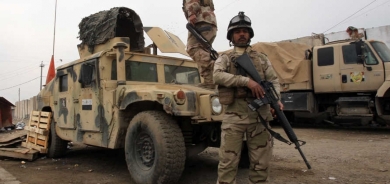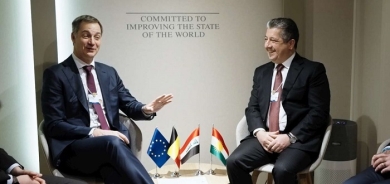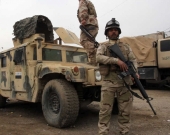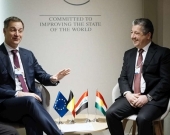Kurdish Farmers and Arab Settlers Reach Temporary Agreement in Kirkuk Land Dispute

Kurdish farmers and Arab settlers have reached a temporary agreement allowing Kurdish farmers to harvest their crops in the disputed province of Kirkuk, following a high-level parliamentary intervention on Wednesday amid heightened tensions.
Shakhawan Abdullah, Deputy Speaker of the Iraqi Parliament, led a delegation to Kirkuk to mediate the week-long standoff between Kurds and Arab settlers. Abdullah met for five hours with the sheikh of the al-Shammar tribe, whose members claim ownership of the contested farmlands.
“We have agreed that Kurdish farmers can resume harvesting,” Abdullah announced. “This is their right, and no one can deny them that.”
Abdullah acknowledged the necessity of compensating the Arab parties involved, stating, “Whoever owns the land, be it Kurdish, Arab, or Turkmen, will have a chance to reclaim damages and establish ownership.”
Tensions escalated in the village of Palkana in Kirkuk, with the Iraqi army preventing Kurdish farmers from harvesting their wheat after Arab settlers claimed a share in the produce and set up tents on the land to pressure the federal government to support their claims.
Kurdish farmers have historically cultivated and owned the land in question, particularly in Palkana, and assert they have official documents proving their historic ownership.
Abdullah informed a crowd of protesting Kurdish farmers that the Arab settlers agreed to end their sit-in for at least four months. During this period, the Iraqi parliament will work on legislation to resolve the land dispute.
Riyad Ali Awas, head of the al-Shammar tribe, clarified that their agreement is to suspend land usage for one farming season while a solution is sought.
Mohammad Amin, a representative of the Kurdish farmers, emphasized the Iraqi government's responsibility in resolving the matter.
“Their [Arab settlers'] demands are directed at the government, not us,” Amin stated. “They have the right to seek compensation.”
Amin explained that the Baath regime of former dictator Saddam Hussein implemented the Arab resettlement program legally. He believes the Iraqi parliament should either pass a new law nullifying the resettlement decision or the federal court should rule on the matter. Their complaints filed with the court remain unheard.
The dispute between Arab settlers and Kurdish farmers dates back to the Baathist era. Land belonging to several disputed villages was taken away from Kurdish farmers by the Iraqi government in 1975 on the grounds that they were located in prohibited oil zones. Two years later, in 1977, under Decree No. 949 issued by the Baath Supreme Revolutionary Court, the land was given to Arabs resettled in the area.
The Arabization of the province has been a historical flashpoint between Baghdad and the Kurds.
After 2003 and the fall of the Baath regime, Iraq began a policy of de-Arabization within the framework of Article 140 of the Iraqi constitution, which aims to reverse the demographic changes carried out by former dictator Hussein. Recently, however, Kurds have complained that the policy of Arabization has been revived.
Last week, Deputy Speaker Abdullah told reporters that he raised the Palkana issue with Iraqi Prime Minister Mohammed Shia’ al-Sudani, stating that the only solution to the issue is the amendment of the current property law and the dissolution of decrees issued by the Baath court decades ago.
A Kurdish official stated last month that over 92,000 Arabs have been relocated to Kirkuk since 2017, urging Kurdish political leaders to work to stop what he called the “new Arabization.”














